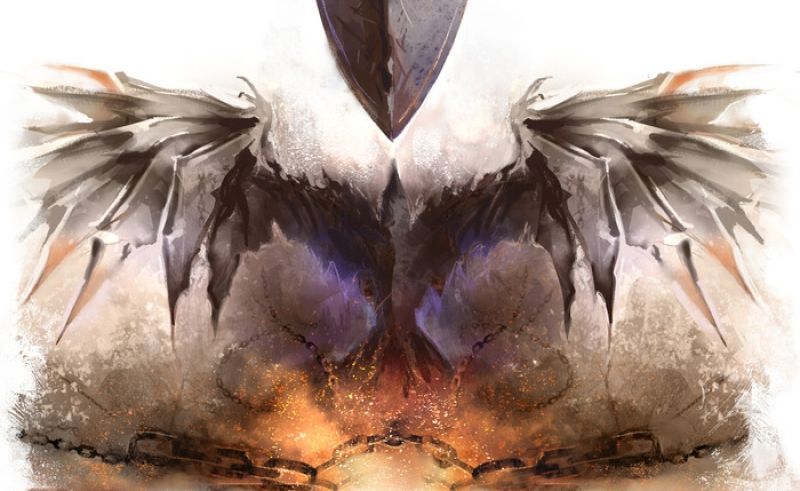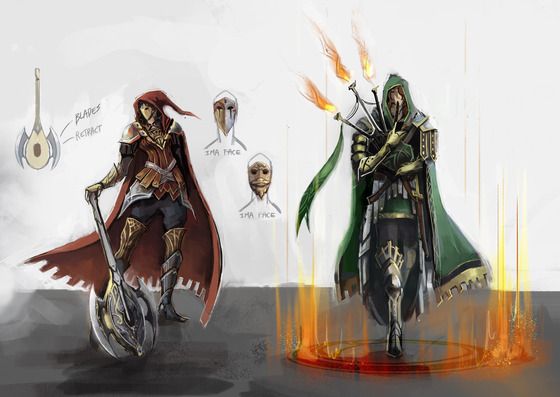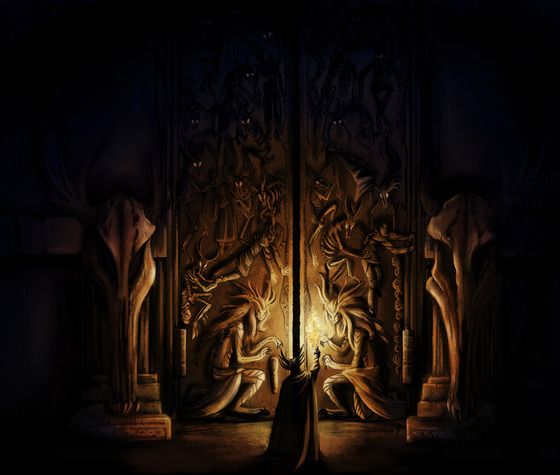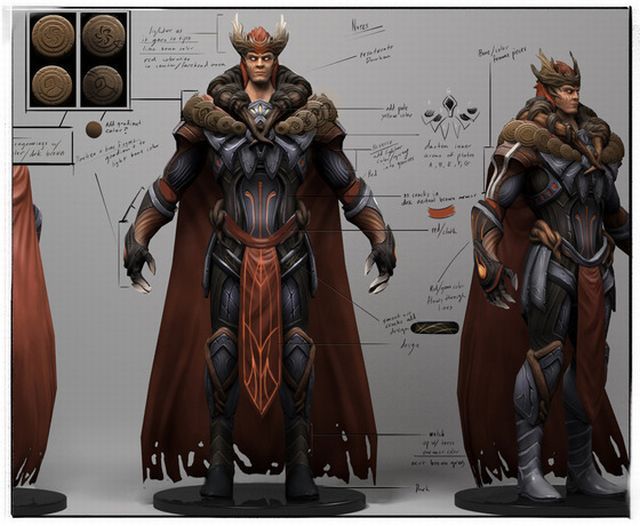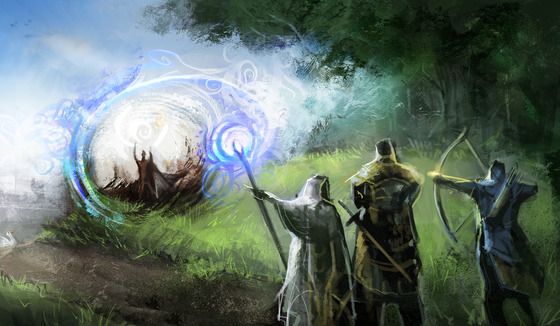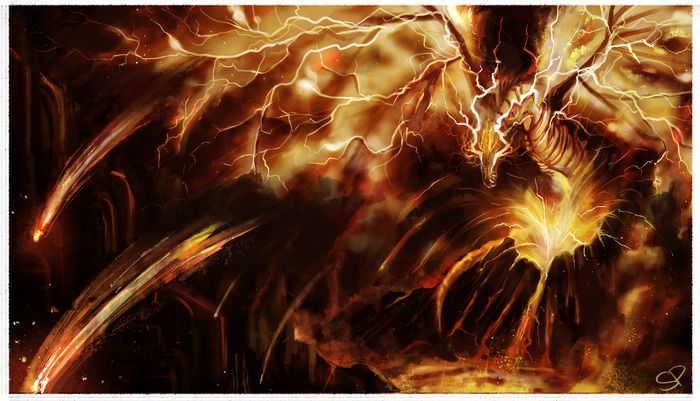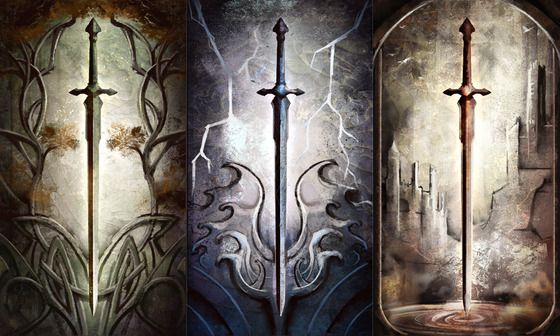As I start writing this piece, the Kickstarter project for Camelot Unchained is in its home stretch, with just a handful of hours to complete its funding and speed towards its first stretch goals. With an average pledge per backer of about $160, it's obvious that many of its supporters really want it to happen. The counter now reads $1,854,237 in pledges. I will continue writing as it grows, and by the look of things the project might very well overtake my writing and beat me to the goal, funding well before I'll be done.
While Camelot Unchained's community is very passionate and proud, there's something that even many of those supporting the game by paying for it more than two years before its planned release date may not have realized yet.
Camelot Unchained is so unique because instead of trying to please all MMORPG gamers in one fell stroke, it radically caters to an arguably niche fanbase of PvP-oriented players while basically showing the finger to everyone else. I'm quite sure most big publishers would consider this course of action absolutely crazy.
But it could work.
If you look at the vast majority of pay to play MMORPGs released after World of Warcraft, you'll notice a very common element: all of them tried to grab the attention of a lot of different kind of gamers. They have PvP, PvE, raiding, questing, housing, crafting, they make coffee, tea, hot chocolate and cappuccino.
After all it's preposterous to leave those that like different kinds of beverages unattended, no? Can't let them just go play another game!
The result of this development philosophy is that resources have to be split between all of those features, and the attention the team can dedicate to develop each of them gets diluted. Most MMORPGs have become jacks of all trades and masters of none.
Unfortunately this means that they're also relatively similar in the features they offer, so their playerbase tends to be fickle and just jump to the next big thing at the first occasion. Mind you, I'm not agreeing with the trite (and false) idea that all modern MMORPGs are "clones" of the usual king of the hill, but while most have several elements that set them aside, they also offer a similar feature range that makes them almost interchangeable.
That's why, when the next big AAA title drops on the shelves, many simply migrate to it in order to find a similar experience with a fresh backdrop and shinier graphics. Alternatively, when the development pace starts to slow down players simply go back to World of Warcraft: it may be old and cranky by now, but it still offers a comparable experience and a lot more content built over the years, paired with a large community that offers more chances for social interaction (and in the meanwhile the Camelot Unchained Kickstarter counter just reached $1,900,005 ).
Post-release updates are also part of the problem. When you have to make everyone and his sister happy with every patch, you end up making no one truly happy, as the development efforts are excessively diluted between PvP, PvE, coffee, tea and cappuccino. How many times you've seen the masses unleash the rage on a MMORPG's official forums because the next big update doesn't involve what each and every one of them would like to see?
Pay to Play MMORPG developers are simply trying too hard to make everyone happy, and in most cases they're failing. When they discover that their ability to make everyone happy simply isn't up to par, the only way they have to address the almost unstoppable bleed of subscribers (and money) is to go free to play (or more precisely hybrid) and lower the entry barrier in order to keep their numbers up.
It's a placebo solution, as they don't raise the level of satisfaction of their players, but they simply lower the level of satisfaction needed to actually keep them around and to entice new ones to replace those that leave. It also comes at the price of a rather massive shift in development philosophy. A lot of resources need to be moved away from keeping everyone happy and engaged, and diverted into enticing players to spend as much as possible in the cash shop. The obvious and rather sad result is that the bleeding normally slows down, and in some cases it even stops, but the quality of the experience lowers for everyone involved.
If we look at the past, not everyone fell into that trap. There are at least two MMORPGs that held fast for over ten years, resisted the onslaught coming with World of Warcraft, and are still holding on a large portion of their playerbase today without dropping their monthly subscription fees: Eve Online and Final Fantasy XI. The first is still growing its quite large subscriber base, while the second is the most profitable game of the long history of the Final Fantasy franchise.
What sets those two games apart from the rest? A few elements (the Camelot Unchained counter just reached $1,950,000 on my screen...need to write faster, or I'll be really beaten to the finish line).
They cater to a very specific niche (Final Fantasy fans for Final Fantasy XI, and ruthless hardcore spaceship lovers for EVE Online) and they don't really try to please everyone.
As a matter of fact, as soon as Square Enix tried to enlarge the niche of Final Fantasy XI by making leveling up easier the game faced some rather serious account retention problems. The same can be said about EVE Online with the Incarna expansion, and CCP had to perform a quick 180 and refocus on its specific niche to stop the bleeding and restart the growth.
Since they don't need to please everyone they can also keep their operations lean and relatively inexpensive, creating a very profitable venue. Part of those profits can then be reinvested in satisfying their specific niche further in a very positive loop of profit and customer satisfaction, creating a much stronger bond with their playerbase and leading to a more solid account retention.
In addition to that, their niches are specific enough that there aren't many other games able to easily attract the same target, making their players less fickle and prone to jumping to the next big and equivalent thing, simply because there isn't one. Their favorite developer is the only one giving them exactly what they want and the bond between gamers and the game is fortified until it turns into pride. And I don't know many communities more proud than the Final Fantasy XI and EVE Online ones.
What does this have to do with Camelot Unchained? The answer actually pretty simple: not only is the game born from Kickstarter, meaning that its whole development will happen thanks to the support and money of its core fans (and that's a source of community pride all right), but it brings the concept I explained about EVE Online and Final Fantasy XI to its most extreme incarnation.
Mark Jacobs' upcoming creation (that just reached $1,990,088 in pledges as I'm typing this) focuses on an extremely specific niche. It's so radical that many defined the idea outright foolish. It picks up two main concepts in the form of a solid tri-faction Realm vs Realm PvP and a very deep Minecraft-like building/crafting system and it drops everything else, including PvE, which is considered by many an absolutely essential element in a MMORPGs.
Oh, by the way...it's 10:06 PM my time (4:06 PM EST) and the game just funded successfully, reaching its two million dollars Kickstarter goal. Looks like I lost the race here, but I still have a lot to write, so I'll let the folks at City State Entertainment and the awesome community on the official comment thread do some much deserved partying while I soldier on.
This means that Camelot Unchained will count on a quite small but also very tightly knit and solid playerbase that might really pave the way for a new angle in the Pay to Play MMORPG market if the game is successful.
Its target is so specific and focused that there's absolutely no other game out there (at least for the foreseeable future) that can offer the same experience, meaning that the core of its players won't have a "next big thing" to look forward to. They'll call Camelot Unchained their home and that feeling of pride and involvement in their game will solidify further.
On the other hand City State Entertainment can focus the full extent of its resources (both human and monetary) into polishing those limited features like a diamond, creating a game that aims to offer the ultimate RvR experience and almost nothing else.
This, of course, means that Camelot Unchained will have a smaller community than most other MMORPGs, and with a smaller community comes a smaller income. A smaller overall income isn't necessarily a bad thing, though, and is balanced out by lower operating costs, that can turn that smaller income into relatively larger profits.
The advantages coming from catering to a very specific niche aren't limited to the game's initial features. Profits can be invested again in creating new content and new features, and all of those elements will have only a very specific fanbase to please. There won't be any PvP-oriented players unhappy because the studio is working on the next big raid that they couldn't care the less about.
A further perk comes in the realm of balancing, which is arguably one of the biggest problems a MMORPG studio has to face. Balancing the same abilities for PvP and PvE is a development nightmare, and almost always results in one having to take a back seat to the other, creating quite a lot of unhappy people within the community. Remove one of the two "Pv" from the equation, and you clean a large percentage of the balancing problems off the chess board.
Of course we still don't know if Camelot Unchained will be successful, since there are still a lot of things that could go wrong during development and after release (and Mark Jacobs sure knows this pitfall well, having experienced the effects of a loss of focus with Dark Age of Camelot's expansion Trials of Atlantis), but the simple idea of focusing on a small and specific niche puts the game in the advantageous condition where the fat is trimmed while still retaining a core community that will support it, as the success on Kickstarter clearly demonstrates.
It will be a small community, but a game doesn't really need a big one to be a profitable operation as long as costs stay below its income, and it will most probably be a happier community, as all the development efforts and resources will be focused on making exactly those relatively few people happy and keeping them engaged. A happy and engaged community, no matter how small, has much less problems in shelling out a subscription fee every month.
This is not to say that every Pay to Play MMORPG should follow Camelot Unchained's footsteps. I'm quite sure there will still be room in the market for big projects that aim to satisfy wider targets, but I would not be surprised if projects like Camelot Unchained will become much more common in this industry.
And thanks to Kickstarter we may see quite a few new MMORPGs created by smaller studios and with smaller budgets, each aiming to please a very narrow and specific niche, creating a sort of MMORPG industry à la carte where gamers will chose their favorite games according to very specific needs and tastes. This kind of approach has the potential of satisfying many players more than forcing them to find the game that fits their niche with a large degree of approximation, only to jump into the next approximative fit quickly when boredom ensues.
Is this a crazy idea? Many said that Camelot Unchained itself was a crazy idea and would have never funded on Kickstarter. Well, guess what? It did.
And with this, I'm finally done. The counter on Kickstarter is on $2,069.069 and growing with 17 hours still to go. Will Camelot Unchained really pave the way to a new breed of extra-niche Pay to Play MMORPGs? The possibility is definitely on the table. If you believe in the ideas behind this game you can still pledge your own support and contribute to reaching the stretch goals. You can also use Paypal here.

